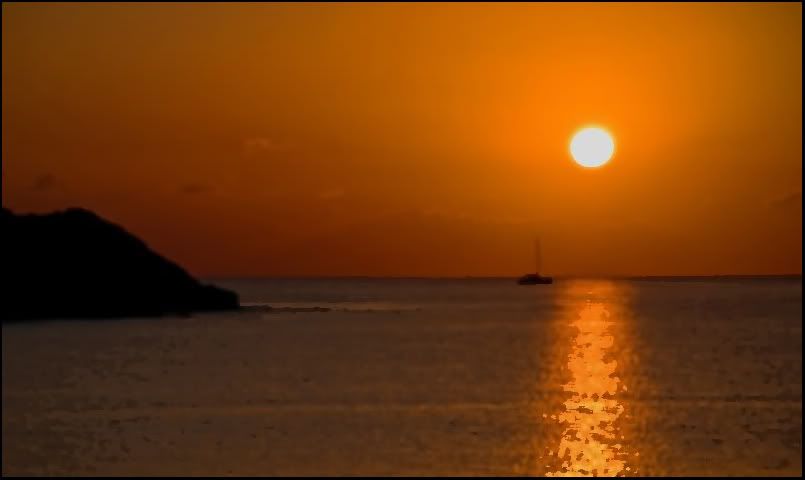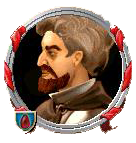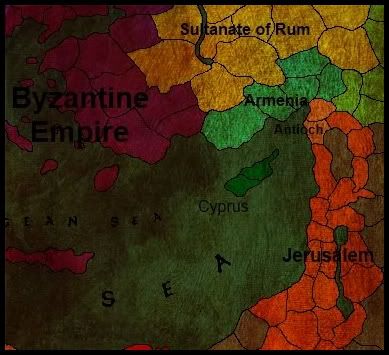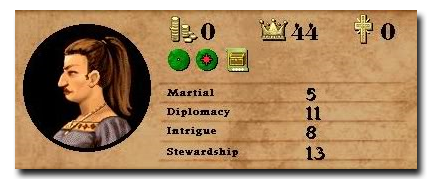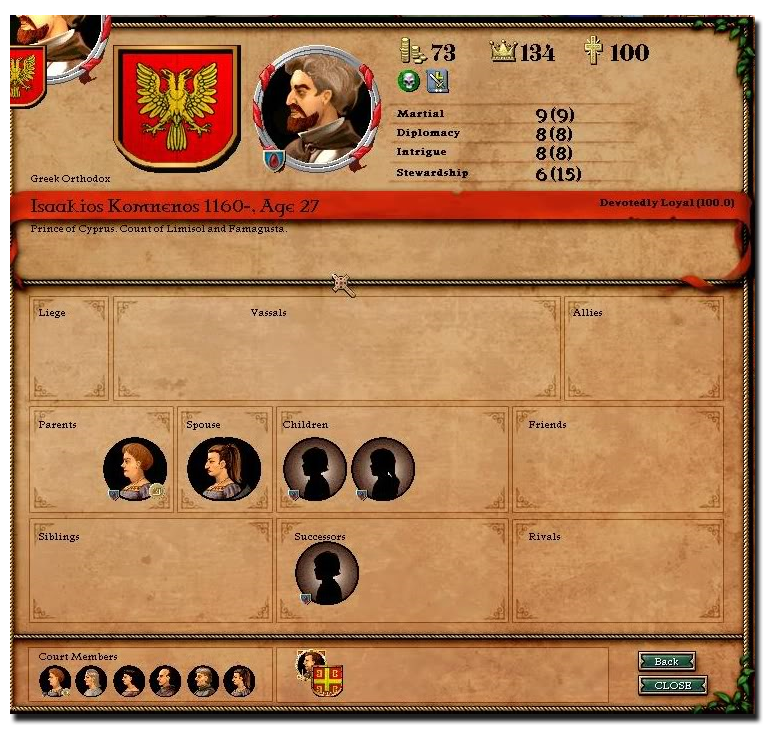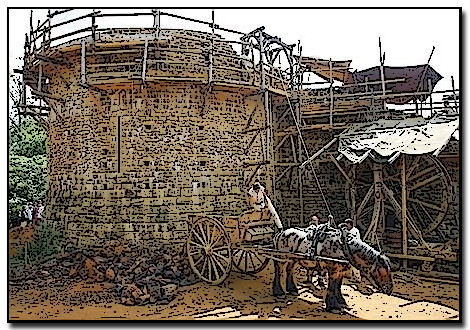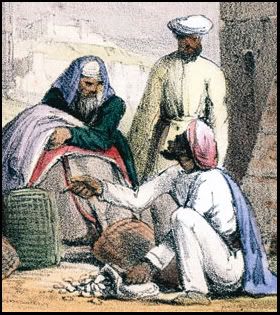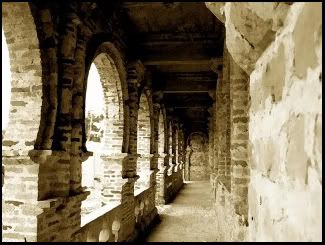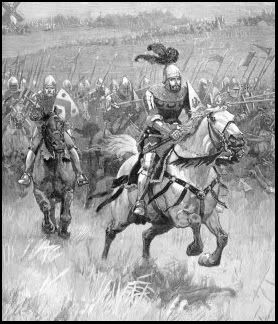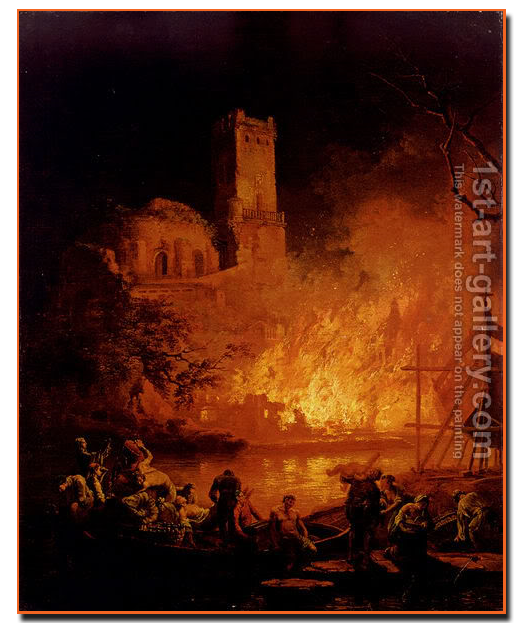Chapter I: Isaakios 'the Cruel'
October 1190
Marshal Arkadios opened the strong oak doors and entered the throne room: ”You wanted to see me, your Emperor?” he asked.
The room was relatively small, approximately four meters in width and six in length. ”Indeed I did”, Isaakios answered.
”I wished to know how the construction of my new residence in Lefkosia is advancing.”
As soon as Isaakios had seized power on the island he knew he had to move the capital inland to avoid Byzantine coastal raids. In fact the Emperor Isaac II Angelos had already sent fleet after him once but his plans were foiled by the Sicilian pirate Margaritone of Brindisi who captured the ships and took them back to Sicily with him. The city of Lefkosia [Nicosia] seemed to be perfect for the occasion. Surrounded by fertile land and protected by mountain ranges in north and south of the city.
But Isaakios had no need to hurry his plans. The Byzantine Empire was in turmoil. The Emperor’s vassals were divided and news of clashes had reached the island already. It was only a matter of time until the situation would evolve into a full-blown civil war.
Arkadios explained the Emperor that the construction was on time, but expressed his worries over the emptying 'imperial' coffins.
“The spirits are low in the streets and in the shops; despair is no medicine for economic stagnation”, the marshal explained. Isaakios dismissed him without giving a thought to his words.
Marshal Arkadios wasn’t too pleased with the current state of the island and how the crown treated its subjects. Yet, his bitterness was mainly caused by the loss of power. He had been a high-ranking administrator on the island until Isaakios landed there with his mercenaries and took power. Although Marshal might seem like a high position in the hierarchy of the island, the truth is that his power was mainly limited to the island’s army consisting of peasants organised as town militias. There were also mercenaries brought in by Isaakios, but they were part of his personal guard and only answered to him.
The marshal arrived at the door of an inn where an important meeting was to be held, one that could change the direction of events and enhance the island’s future if successful.
***
Isaakios was standing on the inner wall of the castle, overseeing the impalement of 20 nobles. They didn’t get the chance to enjoy the benefits of upper classes for long, as Isaakios had randomly picked the men from Limassol the day earlier. Of the 31 poverty-stricken men he had suggested knighthood to, these were the ones who had accepted his offer. Isaakios saw the men as nothing but greedy beggars who should have turned down his gesture of goodwill.
“Greed is a sin”, he yelled at them, “a deadly sin!”
The screams of the suffering men were echoing around the castle yard. A voice interrupted Isaakios’s sick pleasures: “Your highness”, a guard addressed him while kneeling down, “there is someone you should meet inside the gatehouse”.
Isaakios followed the guardsmen, albeit reluctantly.
“Who are you and what is so urgent as to interrupt my routines?” The man laid on his stomach, hands spread on either side and as he kissed the floor in front of the Emperor he was given permission to rise.
“Your highness, I come bearing news of dissidents, a group of influential townsmen planning to overthrow you.”
Isaakios laughed: “There have been numerous attempts in the past and a long list of people who want my removal. Go on, I want names and locations. Traitors must be punished accordingly.”
“This time it’s different; your Marshal is taking part in the plot. I managed to overhear their discussion at the inn near the market district.”
The information had taken Isaakios by surprise. He knew that Arkadios was not his greatest admirer, but he had never expected betrayal from his inner circle. He drew his sword in anger and hacked the informant’s hand off with a quick strike. The man fell on the floor in pain and was carried away by the guardsmen.
***
People were fleeing in panic when Isaakios rode to the market square with a hundred horsemen. The customers of the inn were imprisoned and taken outside regardless of whether they had been part of the plot, no questions were asked. Isaakios ordered his men to torture the innkeeper until he revealed that the Marshal had managed to flee moments before the men charged in. All prisoners were blinded and crucified on the church square to set an example and bring terror into people’s hearts, but this would be just the beginning.




